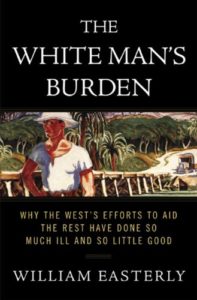
Back in January, I posted “Third World development: A reading list.” Today, the celebrated rural development specialist and author, Paul Polak, called my attention to a similar list that was published at about the same time in the Stanford Social Innovation Review, an outstanding journal that has run a few of my articles and reviews. Only three titles appear on both lists, so I’m reproducing the SSIR article in its entirety here.
The Top 10 Books on the Economics of Poverty
A suggested reading list to provide a foundation for understanding development, aid, and poverty
By Amy Lockwood
The growing community of students and professionals who are turning their attention to social endeavors as careers is inspiring. As someone who made the career switch from strategy consulting to international development work, I remember all too well the anxiety of trying to understand the different theories, familiarize myself with the players, and become fluent in the languages of this community.
In addition to listening more than speaking, cultivating curiosity, and abandoning the fear of looking stupid when asking, “What does [fill in the blank] mean?”—in my first years in this new space, I asked for recommendations of books that would provide a foundation for my understanding of development, aid, and poverty. I recently revisited these recommendations as a member of the Opportunity Collaboration, and the following is a suggested reading list to provide a foundation for your adventures.
The White Man’s Burden: Why the West’s Efforts to Aid the Rest Have Done So Much Ill and So Little Good (2006), by William Easterly
Easterly, a celebrated economist, presents one side in what has become an ongoing debate with fellow star-economist Jeffrey Sachs about the role of international aid in global poverty. Easterly argues that existing aid strategies have not and will not reduce poverty, because they don’t seriously take into account feedback from those who need the aid and because they perpetuate western colonial tendencies.
The End of Poverty: Economic Possibilities for Our Time (2006), by Jeffrey Sachs
Taking an almost entirely diametrical approach than Easterly, Sachs outlines a detailed plan to help the poorest of the poor reach the first rung on the ladder of economic development. By increasing aid significantly to provide the basic infrastructure and human capital for markets to work effectively, Sachs argues such investment is not only economically sound but a moral imperative.
The Bottom Billion: Why the Poorest Countries are Failing and What Can Be Done About It (2007), by Paul Collier
Economist and Africa expert Collier analyzes why a group of 50 nations, home to the poorest one billion people, are failing. Considering issues such as civil war, dependence on extractive industries, and bad governance, he argues that the strongest industrialized countries must enact a plan to help with international policies and standards.
The Fortune at the Bottom of the Pyramid: Eradicating Poverty Through Profits (2009), by C.K. Prahalad
Prahalad, a business strategy professor, was among the first to argue that the fastest growing market in the world was made up of the world’s poorest people. He details the purchasing power of this segment, and advocates that big businesses should learn how to understand this population’s needs in order to develop products that address both economic mobility and corporate growth and profit.
Creating a World Without Poverty: Social Business and the Future of Capitalism (2009), by Muhammad Yunus
Yunus, an economist and Nobel Prize Winner, was among the first to describe a social business as one that is modestly profitable but designed primarily to address a social objective. Using this approach, he argues that modern-day capitalism is too narrowly defined, particularly in its emphasis on profit maximization. By including social benefits in the equation, he believes that markets and the poor themselves can alleviate poverty.
Out of Poverty: What Works When Traditional Approaches Fail (2009), by Paul Polak
Polak, a psychiatrist, has applied a behavioral and anthropological approach to alleviating poverty, developed by studying people in their natural surroundings. He argues that there are three mythic solutions to poverty eradication: donations, national economic growth, and big businesses. Instead, he advocates helping the poor earn money through their own efforts of developing low-cost tools that are effective and profitable.
Dead Aid: Why Aid is Not Working and How There Is a Better Way for Africa (2009), by Dambisa Moyo
Moyo, a Zambia-born economist, asserts that aid is not only ineffective—it’s harmful. Her argument packs a strong punch because she was born and raised in Africa. Moyo believes aid money promotes the corruption of governments and the dependence of citizens, and advocates that an investment approach will do more to help reduce poverty than aid ever could.
Poor Economics A Radical Rethinking of the Way to Fight Global Poverty (2011), by Abhijit Banerjee & Esther Duflo
Using the framework of randomized control trials, which allow for large-scale data collection to evaluate the effectiveness of an intervention, these two development economists assess the impact of a wide range of development programs in alleviating poverty. They have found that most programs have not been designed with a rigorous understanding of the behaviors and needs of the poor or how aid effects them, they advocate that for programs to be successful they must be designed with evidence gathered from direct interaction with those who they are meant to benefit.
Development As Freedom (2000), by Amartya Sen
A Nobel Prize winning economist, Sen examines the essential role that elementary freedoms, social and political, have in improving the prosperity of the society at large. Although his focus on human welfare as a central aspect of economic thought is not universally accepted among economists, this approach inserts elements of ethics into a field from which it is often not emphasized. Although this is a difficult read, the concepts included are important to the dialogue about the causes and remedies to the economics of poverty.
Good to Great and the Social Sectors (2005), by Jim Collins
Meant to accompany the seminal business book Good to Great that examined why companies succeed or fail and found nine key aspects, including: leadership, simplicity, discipline and innovation, this work focuses on applying these lessons to the nonprofit sector. While more focused on management of organizations than macroeconomic issues, this short and easy to read monograph suggests a roadmap of how those interested in addressing issues of poverty should pursue these efforts.
Amy Lockwood is the Deputy Director of the Center for Innovation in Global Health at Stanford’s School of Medicine, where she works on research, education, and innovation programs focused on issues of global health. With a background spanning the business, nonprofit and academic sectors, she has deep experience developing strategies, managing, and evaluating development projects and organizations throughout Africa, Asia, and Latin America.
You may also be interested in my posts Third World development: A reading list and Third World poverty and economic development: a reading list.
And you can always find my most popular reviews, and the most recent ones, plus a guide to this whole site, on the Home Page.

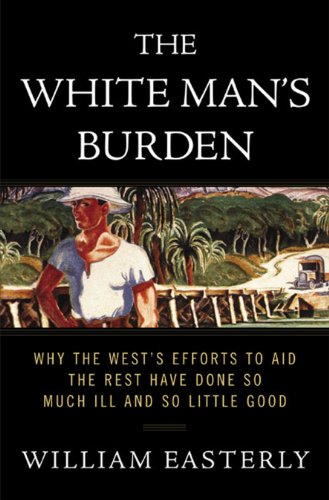
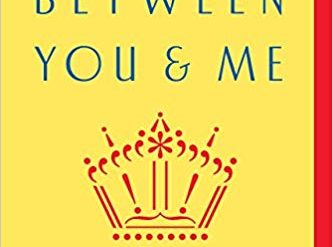
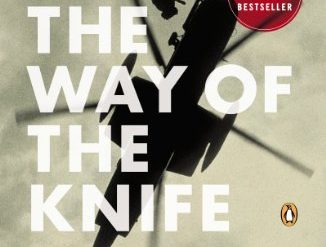

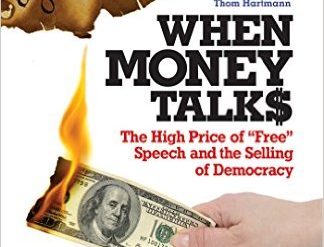





















Interesante, Mal. Mi MA en UCLA en 1969 fue en Economica Development y luego de tantos años en Banca Multilateral y privada veo que siguen dando vueltas los mismos topicos sin lograrse las recetas magicas, que sencillamente no existen. De los economistas que estudie en mi epoca, solo veo a Amartya Sen. Algo he leido de Prahalad, Sachs y Yunus.
Cuando visitan nuevamente Ecuador?
Saludos,
Gerardo
Que gusto recibir tu nota, Gerardo! Estoy de acuerdo contigo que no haya soluciones sencillas al problema de pobreza, sino que si hay una manera muy efectiva de acelerar el proceso de desarrollo rural: empezar en el campo mismo con los campesinos y trabajar directamente con ellos!
Quiza Nancy regrese de nuevo al Ecuador el ano que viene pero yo probablemente no. Ya no viajo mucho.
Abrazos . . .